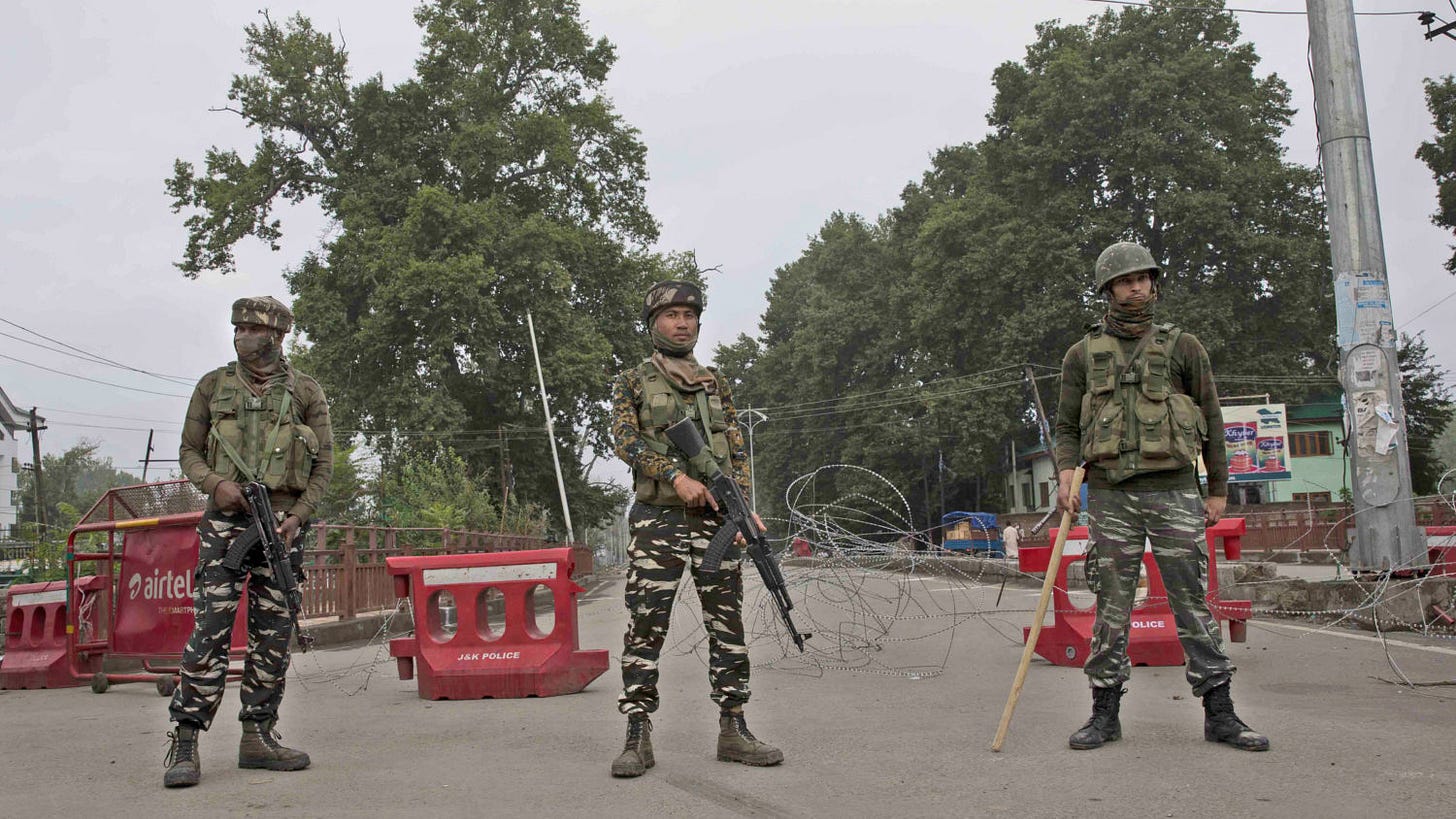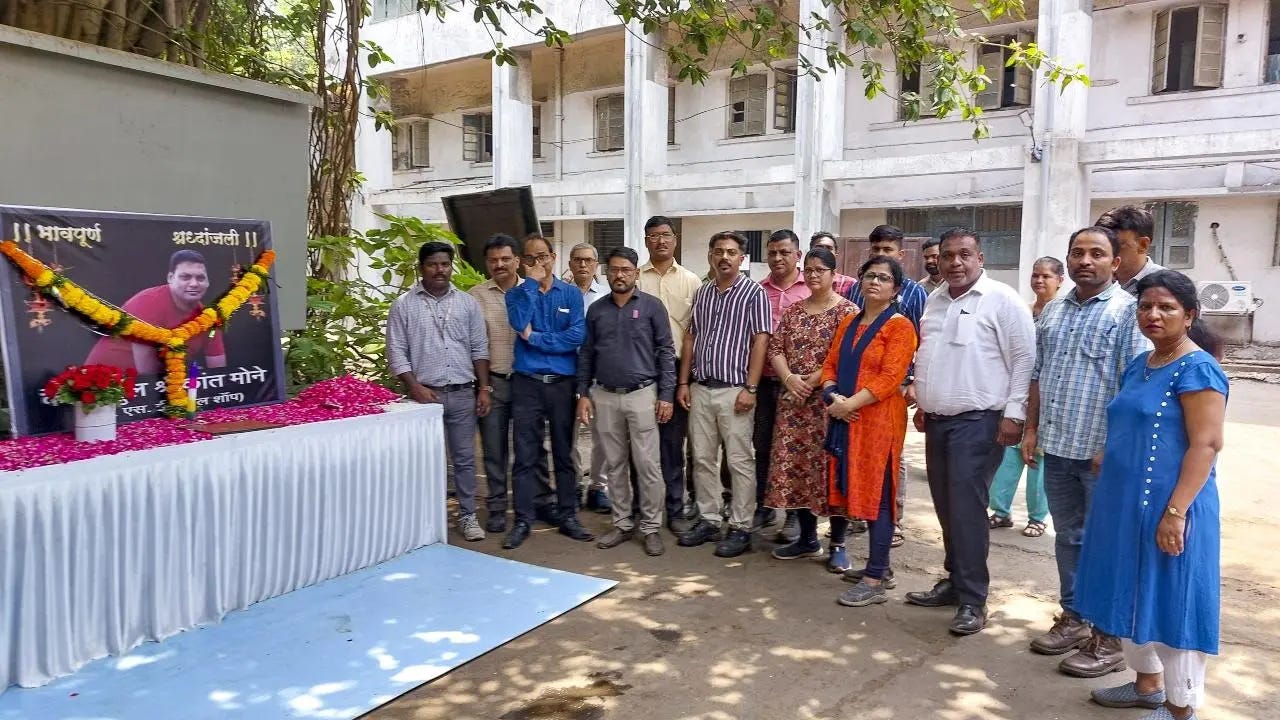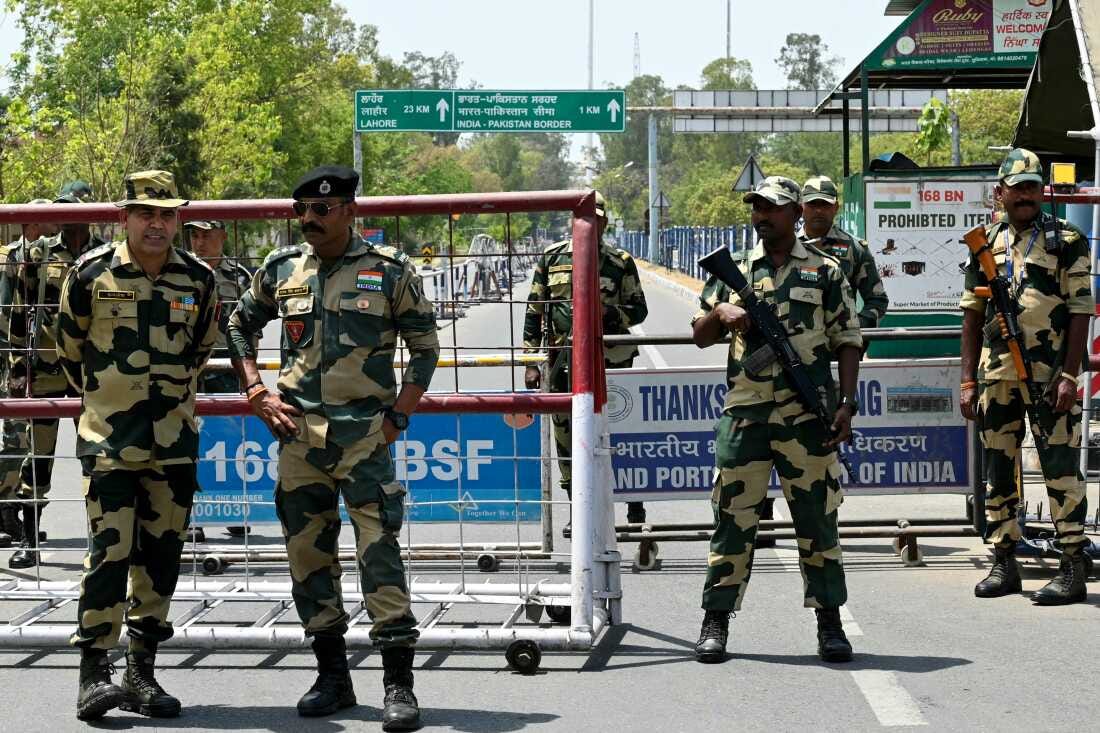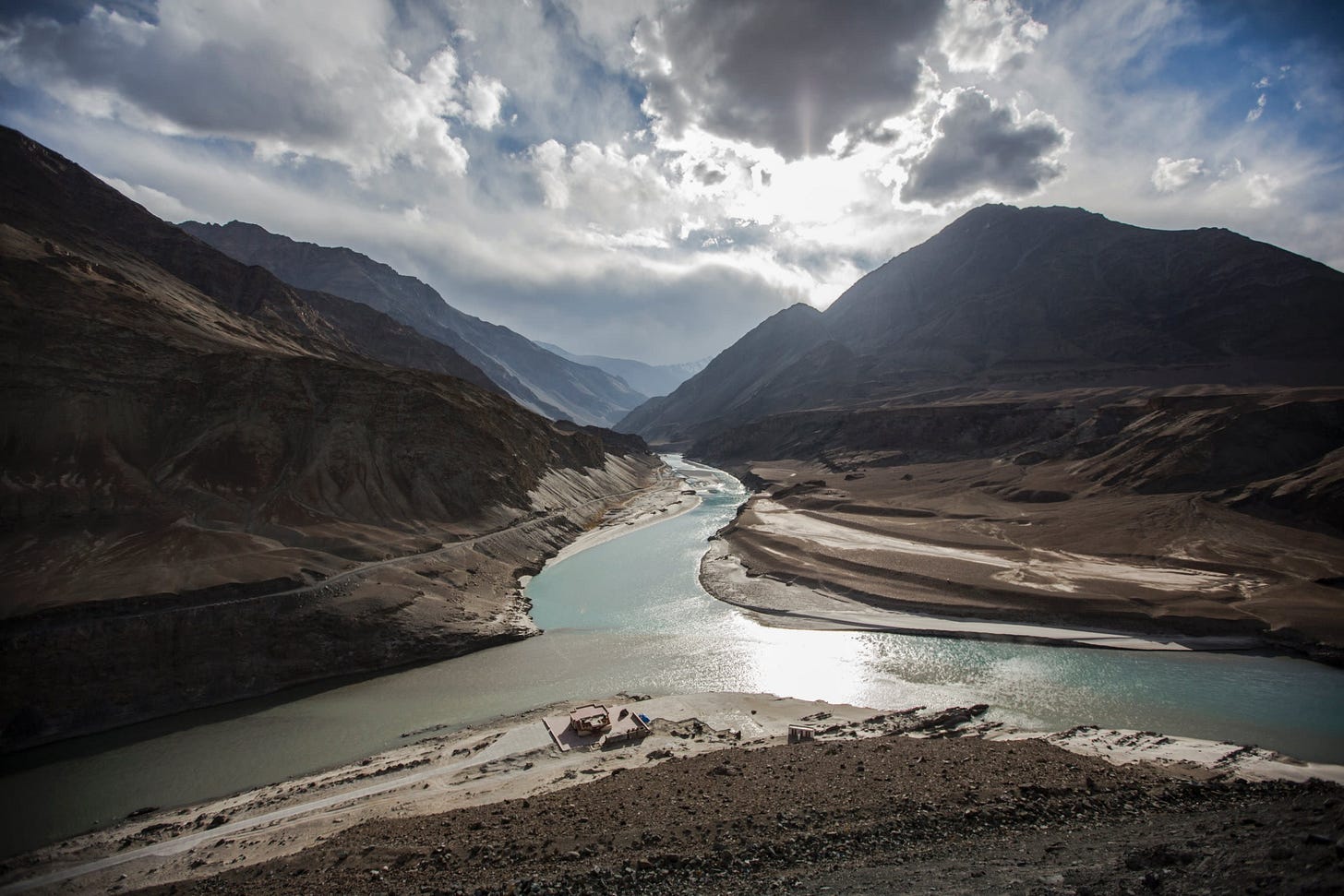india and pakistan edge closer to confrontation after kashmir massacre
cross-border fire, diplomatic breakdowns, and the threat of escalation return to the world’s most dangerous border.
In Kashmir, decades of deadlock just turned deadly again.

On Tuesday, gunmen stormed a tourist spot in Pahalgam, Indian-administered Kashmir, killing 28 people. 25 Indian citizens, one Nepali, and two Emirati nationals.
Survivors say the attackers came out of nowhere and opened fire at close range. Men were singled out. Some were accused of supporting Modi. Most people had no chance to escape.
A militant group called The Resistance Front (TRF) claimed responsibility. Indian authorities say it’s just a rebrand of Lashkar-e-Taiba (the same Pakistan-based group linked to the 2008 Mumbai attacks).

Indian police quickly named three suspects: two Pakistanis, one local Kashmiri. A 2-million-rupee bounty was put on their heads.
It didn’t stop there.
Indian and Pakistani soldiers exchanged fire across the Line of Control the next night. No civilian casualties, but the message was clear: the borders are hot again. India blames Pakistan. Pakistan blames India. The UN is begging both sides to calm down. Nobody’s really listening.
a diplomatic collapse, in real time
After the attack, India didn’t just point fingers, it took action.

They shut down the main border crossing at Attari-Wagah. Canceled visas for Pakistanis. Expelled Pakistani military advisors from New Delhi. And, in the biggest move yet, suspended the Indus Waters Treaty, the 1960 deal that governs river sharing between the two countries.
The Indus River system is Pakistan’s lifeline. It powers farms, cities, and power plants across the country. After India suspended the water-sharing treaty, Pakistan warned that any attempt to cut or divert the flow would be treated as an “act of war.”
In retaliation, Islamabad shut its airspace to Indian planes, halted all trade with India, expelled diplomats, and canceled its own visas for Indian nationals. The two countries aren’t just trading fire across Kashmir anymore. They're tearing up whatever diplomatic ties they had left.
For decades, kashmir has sat in a deadlock. not resolved, just managed.
Since 1947, Kashmir has been the unfinished business of partition. Two countries claiming the same land, the same rivers, the same people. India holds about two-thirds. Pakistan holds the rest. The whole region is saturated with soldiers, bunkers, and generations of trauma.
When Modi's government stripped Kashmir of its special status in 2019, revoking autonomy and bringing the Muslim-majority region directly under New Delhi’s control, it promised more peace, more prosperity.
Instead, Kashmiris lost trust. Militancy slowed down for a while. But it never disappeared. And now, after Pahalgam, the cracks are wide open again.
Protests have broken out in Srinagar and beyond. Anti-Pakistan rallies are sweeping Indian cities. Reports of Kashmiri students being harassed elsewhere in India are already starting to surface.
And inside Kashmir itself, people are bracing for the worst. Mass arrests, curfews, crackdowns, it’s all on the table.
the water war nobody wants, but might get
The Indus Waters Treaty was supposed to be the one thing India and Pakistan could agree on, no matter what. It survived wars, coups, and crises for more than 60 years.
Now it’s on the line.
Realistically, experts say India can't just shut off Pakistan’s water overnight. They don't have enough dams or diversion canals to do it yet. But if India starts holding back flows during dry seasons, when Pakistan already struggles, it could hit farmers and cities hard.
Even worse, it could set a new precedent: turning water into a weapon. A weapon you can't un-pull once you use it.
what happens now?
Nobody knows.
India’s Prime Minister Narendra Modi is under massive pressure to respond, militarily, not just diplomatically. Analysts are already drawing comparisons to the 2019 Balakot airstrikes, when India bombed targets inside Pakistan after a suicide bombing killed 40 Indian soldiers.
This time, it could go even further. Both sides are better armed. Both sides are angrier. Both sides have less patience. And both governments are under pressure at home (especially Pakistan), dealing with economic trouble, political anger, and slipping support. For leaders in Delhi and Islamabad, a fight across the border could be a convenient way to rally people back around the flag.
The next few days, maybe even the next few hours, could decide whether this latest crisis stays a border skirmish, or becomes something much worse.





